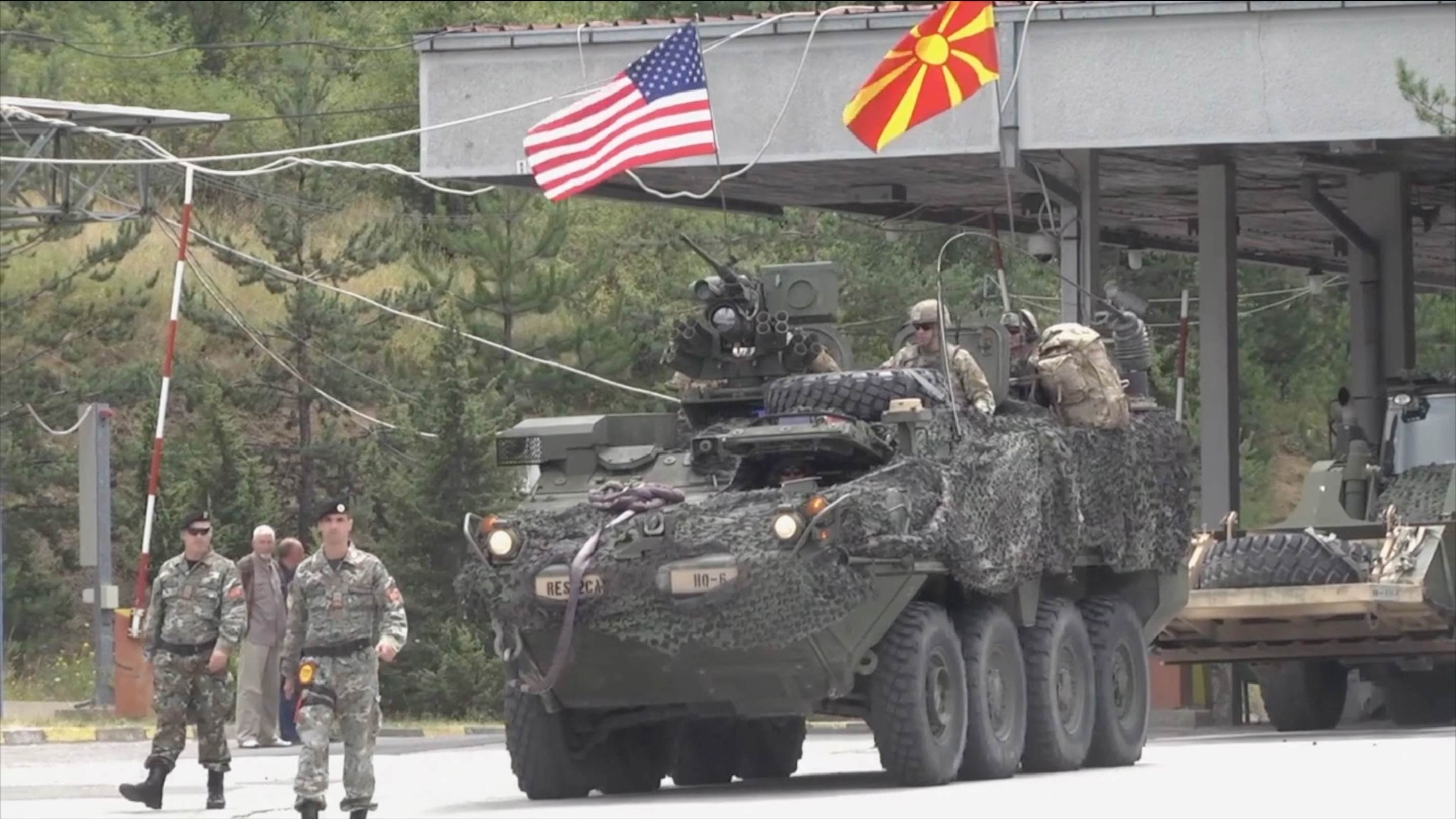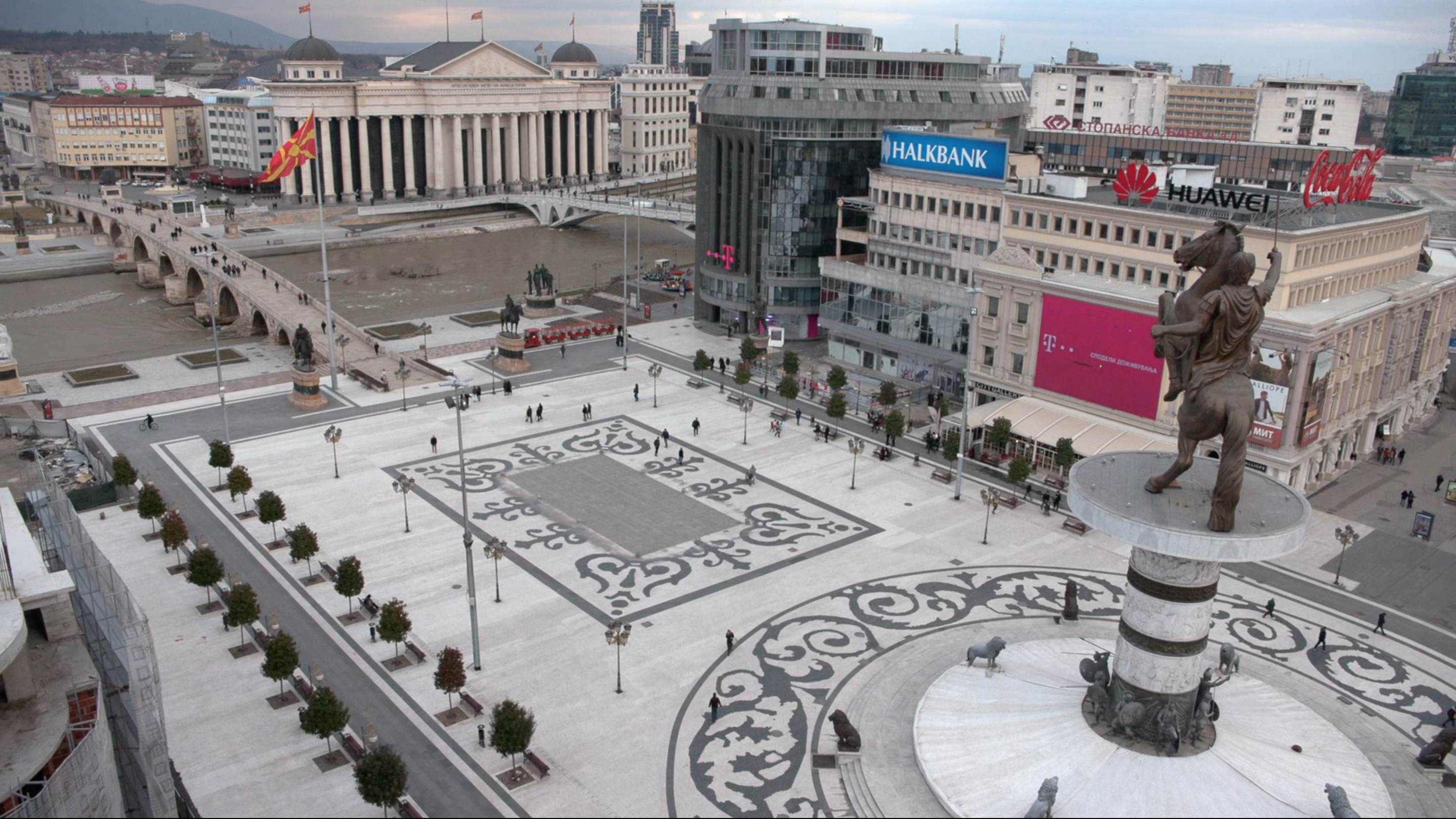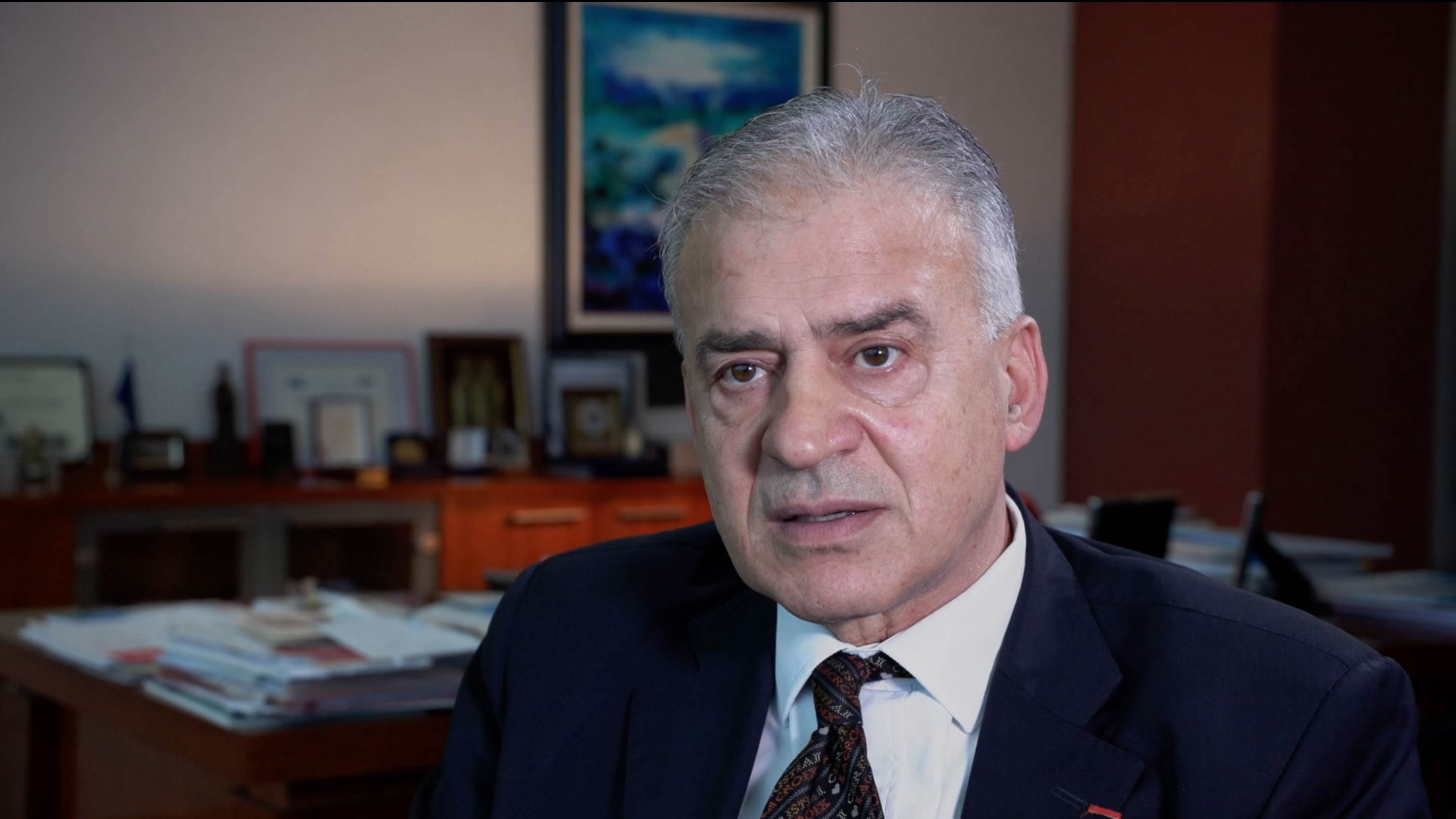
Politics
09:36, 13-Feb-2018
Macedonia's new hopes for NATO membership bid
By Aljosa Milenkovic

After recent changes in the political leadership of the Republic of Macedonia, the country took the fast lane to resolving a name dispute with Greece and its future NATO membership. Although as far back as 1993, Macedonia officially stated its interest in joining the alliance, the country is only now at its gates, with NATO vocally supporting it.
Last summer, US troops in full battle gear showed up at Skopje's town center. Locals came by the hundreds to see that unusual sight. Their children climbed on top of the US infantry vehicles to play, with the US and Macedonian flags behind them. American soldiers came from neighboring Bulgaria to the mission to win the hearts and minds of locals.

US troops enter Macedonia from Bulgaria. /Macedonian MOD Photo
US troops enter Macedonia from Bulgaria. /Macedonian MOD Photo
And considering that the vast majority of people sees NATO as the protective cover from further regional instabilities, that won't be a difficult task to do. NATO is important for them considering what this country went through since the first days of its independence back in 1991 until only recently.
Opposing voices claim hidden agenda
But not everybody shares that opinion. A handful of opposing voices are saying that, actually, the US desire to expand NATO's southern flank is behind those open NATO doors.

Skopje Town Center /CGTN Photo
Skopje Town Center /CGTN Photo
Analysts say that NATO has significant interests in Macedonia, but also say that it is a marriage of convenience, that's happening right now only because of current geostrategic tensions. They are saying that the wish to prevent the return of Russia to the Balkans is behind that hidden agenda.
"Macedonia is trying to use this moment, to get a security umbrella which would guarantee its independence and territorial integrity, and at the same time to become a member of an established club of 30 countries, where it can talk on an equal basis with the big powers,” said Nano Ruzin, former Macedonian ambassador to NATO and also a strong advocate for Macedonia's NATO inclusion, who sees that this is the perfect time for his country to become a member of that alliance.

Nano Ruzin, former Macedonian ambassador to NATO /CGTN Photo
Nano Ruzin, former Macedonian ambassador to NATO /CGTN Photo
Macedonia is a country of two million people with a history of ethnic tensions and violence between Slavic Macedonians and ethnic Albanians, who constitute almost a third of the entire nation. Back in 2001, NATO brokered a deal between the two ethnic groups after months of bloody clashes.
Ever since, Macedonia has seen NATO as the guarantee for a tense but peaceful period, particularly since it is surrounded by three NATO member countries.
NATO as 'economic player'
Macedonian officials, see the perspective of NATO membership also through the other various benefits. They are claiming that, according to them, NATO is less and less military alliance, while economic benefits are becoming more important.
Macedonian defense minister Radmila Sekerinska strongly supports that position, saying: "We have seen also what happens around us with the countries that have become NATO members, not only in Central and Eastern Europe, but also let’s say Bulgaria and recently Albania and Montenegro. It has not only increased their stability, it has also increased their economic performance."

Radmila Sekerinska, defense minister of Republic of Macedonia /CGTN Photo
Radmila Sekerinska, defense minister of Republic of Macedonia /CGTN Photo
Macedonia's first bid to join NATO failed in 2008 when it was vetoed by Greece, because of dispute over the name of the country. Now, with Mathew Nimetz, the US diplomat as UN mediator, Greece and Macedonia are closer than ever to resolving the name problem. And after that's off the table, Macedonians are confident that by the end of 2018, some major breakthroughs will happen that will clear their way to NATO.
7532km

SITEMAP
Copyright © 2018 CGTN. Beijing ICP prepared NO.16065310-3
Copyright © 2018 CGTN. Beijing ICP prepared NO.16065310-3